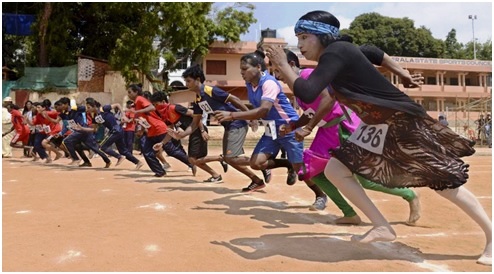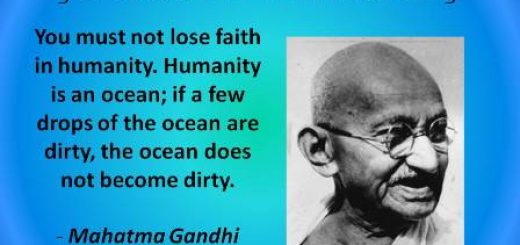Kochi Metro is doing it to transgenders! Foot washing is core of Xstianity

Cover Photo: Transgender athletes take part in a run at the nation's first ever transgender athletics meet in Thiruvananthapuram earlier this year.(PTI)
dr. james kottoor
 Preferential treatment given to the poor, abandoned and marginalized was the thrust of good news proclaimed by Jesus. As a shining concrete example of it, he humbled himself to wash the feet of his disciples chosen from among the ignorant common people including the fisher folk.
Preferential treatment given to the poor, abandoned and marginalized was the thrust of good news proclaimed by Jesus. As a shining concrete example of it, he humbled himself to wash the feet of his disciples chosen from among the ignorant common people including the fisher folk.
What else was Kochi metro doing when it put 23 transgenders on the drivers’ seat in broad day light and became a model for the whole of India and the world, on how to give equal, nay preferential treatment to a section of our citizens marginalized and pushed into the back yard of society for no fault of their own but due to an objectionable stigma cast on them by popular outdated religious beliefs and practices. This stigma denys them equal opportunities to find jobs for living in the private sector or even at government level.
For example, in West Bengal government application forms to change from one job to another do not have the ‘transgender’ option. Many transgender persons, all over the country besides, are ill treated, ridiculed, despised, physically attacked and thrown out of public space, nay even from their own homes due to mistaken popular blind belief that being a transgender is due to one’s own fault or sinful tendency or acquired habit, which it is not. They are molded so by the author of nature from which they are unable to get out, like a left handed person by birth. Who is at fault for one being born, left handed? The creator?
This mentality prevailed even in USA. As a result transgenders and gay people were excluded from military service. Still many used to join the military without declaring they were so. It was only during the time of Obama administration gay people were allowed to declare their gay sexual orientation and join the military or continue to stay on.
Christians in general and Catholics in particular look down upon gay people and lesbians as infra-dig. Sodomy was declared a sin and to justify it they trace its biblical roots to “Sodom and Gomora” destroyed by fire and Loath’s wife turned into a pillar of salt for disobeying not to look back at it while fleeing.
The axe to fell this wild oak of a superstetious belief, obstructing clear thinking was first raised by Pope Francis while responding to journalists in the plane: “Who am I to judge if a gay person prays in all honesty to God to find light?” He was very frank to admit, there were homosexuals in the Vatican but never condemned any of them. In the world of Catholics, the majority of African bishops are dead set against same sex relations. We saw it in the last two family synods. Because of this sharp conflict, the Synod bishops could not produce their own conclusion to the heated discussions of two family Synods, even though Francis was in favor of giving gay people equal treatment. So he had to draft the “Amoris Laetitia” later.
As for European bishops, those from Germany, France and Belgium were in the forefront, defending the cause of gay people. And Ireland became the first country to endorse gay marriage in their national assembly by popular vote and remember the Irish were once praised or caricatured as a people who are more Cahtolic than the Pope.
What about Indian bishops? They are a group who are neither there nor here, with hardly any thought out opinion of their on issues discussed in the two synods. They just join the winning side following their herd mentality refusing to stray from the beaten track. They are never the ones to shake the boat and create controversy. Yet there was one exception in the case of Cardinal Oswald Gracious of Bombay.
He made history by speaking up publically for gay people and transgenders both in Church and civil society. He even wrote articles supporting them which we published in the CCV. He also appealed to the central government to give equal treatment to them. No other bishop in India – Latin, Syromalabar or Malankara – has ever done that. He was also the first one to loudly condemn the three Reddy priests in Andhra when Bishop Gallela of Kadappa was kidnapped and tortured for being a Dalit and not acting according to the wishes of the high caste Reddy clergy.
In India defending the cause of gays, homosexuals, lesbians and transgenders is as unpopular as defending the cause of low castes and acting upon it, both in Church and society. It is not something done by those who believe in the status quo. Precisely for that reason the example of the Kochi metro in the secular domain, entrusting the drivers seats to 23 transgender people deserves all praise and admiration. Throwing one’s lot with the underdog is at least an occasional trait of the revolutionary sections among the Kerala society.
Kerala called the “mad house” by Vivekanda because of it blind beliefs and practices in his time, occasionally rise to the top as “God’s own country” by casting their lot with the underdog, despised and marginalized which after all is the core of Chrisrianity, that is, to act as the Good Samaritan taking care of the traveler from Jerusalem to Jericho and left wounded and abandoned by robbers one the road side.
It is not the first time Kerala shows preferential treatment to transgenders. It also organized an athletic meet – a running race – for the transgenders, see the photo presentation of it above. What else is being Jesus-like if not to attend first to the dying and wounded – the transgenders — in the battle fields of Church and society? May this example of Kochi metro infect the rest of India like a contagion. james kottoor, editor, ccv.
Please read Hindustan Times report on Kochi metro below
Kochi Metro’s transgender
outreach is cause for cheer
Dhrubo Jyoti ,in Hindustan Times OPINION: May 19, 2017
Kochi Metro’s decision to offer three-year contracts to 23 transgender people helps in setting a model for the government to enact affirmative action policies in jobs for one of India’s most marginalised sections.
Metro projects are touted as an innovative remedy to the traffic knots in major Indian cities. Last week, the Kochi Metro project gave another reason for cheer.
The government-backed project said it will offer three-year contracts to 23 transgender people, and employ them in housekeeping, ticketing, publicity and canteens. The initiative came as a joint venture with a self-help group Kudumbashree that received widespread praise in February for opening a transgender section.
But apart from the immediate benefits of the move, the Kochi Metro’s decision also helps in setting a model for the government to enact affirmative action policies in jobs for one of India’s most marginalised sections.
Three years ago, the Supreme Court had ordered sweeping protections for the transgender community that included setting aside quotas for them in jobs and education. This came from a recognition of the hurdles of access that ensured transpersons are kept at the fringes of our colleges, schools, offices and factories for reasons that have nothing to do with their ability or qualification.
The only way out of this is proactive and affirmative policy. But the government has dithered on this front, with little action on the ground backing the well-intentioned talk. Today, few organisations help or employ transgender people and even basic facilities such as toilets become a problem for trans employees in the workplace.
Bullying and stigma remain rampant and trans employees – the few who make it to white-collar jobs report high levels of stress, discrimination and hate from their colleagues. Many are outright refused the right to use the name or gender of their choice, or wear the clothes they want. The discomfort of fellow workers becomes more important than the right of a transperson to earn their livelihood.
This forces many to drop out, resort to other less paying professions, depression and even suicide. The court struggle by Atri Kar in West Bengal, for example, to change government job application forms that didn’t have a transgender option is testament to the lengths transpeople have to go for things we take for granted.
The other facet of affirmative action lies in understanding the causes for under-representation of transgender people in traditional jobs before rushing to ban options such as begging or sex work, as the recent transgender rights bill does. Even in prestigious institutes such as Delhi University, few transgender people enrol owing to a lack of genuine commitment, fears of bullying and violence, and crushing poverty.
Many transgender people are thrown out of homes, subject to abuse, body mutilation and thrashing and have scant access to resources needed to access education. Even the few who are well off are often pushed out of the mainstream by a daily barrage of abuse, stares and shame – thereby ensuring no provision of white-collar jobs. To criminalise acts such as beggary is, then, a de-facto jail sentence for the community.
We live in times where transgender is a buzzword, often used by high-voltage publicity campaigns to garner goodwill and notch up progressive points. But away from the glare of the camera, trans communities still battle overwhelming amounts of poverty, bias and violence. Timely and affirmative action can change this. We need many more Kochis.
















